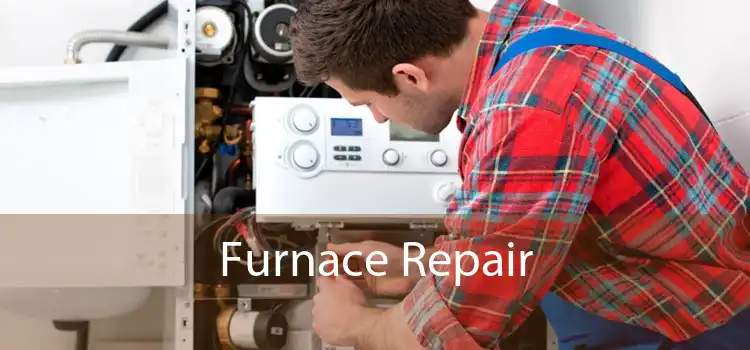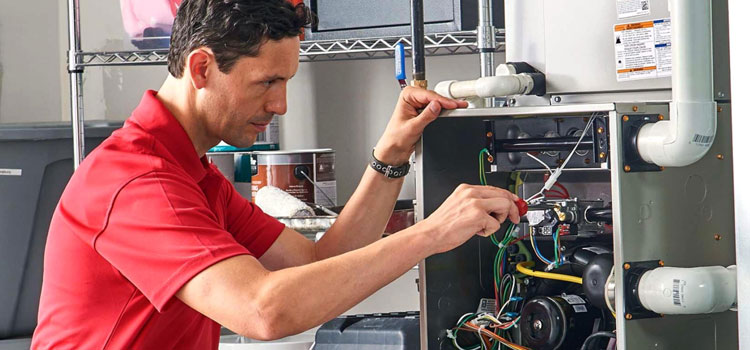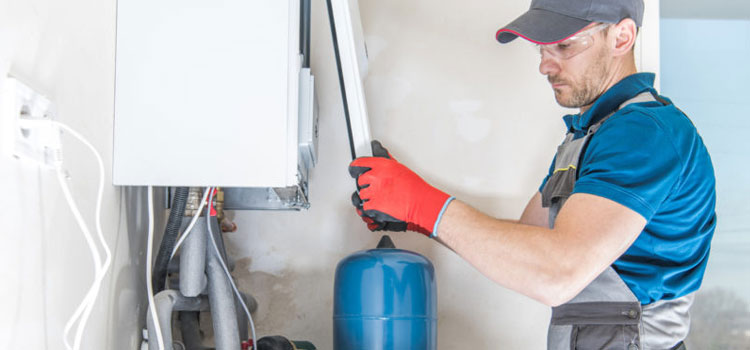Heating your home in the winter doesn’t have to be costly, cumbersome, or a risk to your health. You may depend on your furnace in the winter more than your air conditioning in the summer. AC Repair Techs offers furnace repair services with great benefits for your every need. Our HVAC Technicians are clean, and friendly, and will make sure your home is exactly as it was when we arrived to work on your heating system. At AC Repair Techs we understand that furnace problem are more than a mere inconvenience – they can have a serious impact on the safety of you and your family. If your furnace is acting up, schedule your furnace repair and receive peace of mind knowing that a licensed, Certified AC Technician will have your system up and running as quickly as possible. Making your home comfortable is our objective that is why we offer around-the-hour services to repair your commercial or industrial furnace. Furnace Repair is a family-owned and operated business that has been servicing in near you for over years.

The natural gas furnace is one of the most popular types of furnaces. At AC Repair Techs we have dealt with a wide variety of Natural Gas Furnace Issues. Nearly half of all residents use natural gas to heat their homes. If you are experiencing some problems, our residential and commercial gas furnace repair experts are here to help. Our friendly Furnace Repair Technician at AC Repair Techs is trained to be able to assess your gas furnace, determine what the problem is, and fix it quickly so that you can enjoy a cozy, warm environment again in no time. Give us a call today at 877-959-6420 to set up a furnace repair appointment.
When your furnace breaks down, you need help immediately. For emergency furnace repair service, you need professionals you can trust to fix your system right away. Our Emergency Furnace Repair Services will give you peace of mind. Once we arrive, we will immediately diagnose the problem and get your HVAC system back up and running. When it comes to helping people in an emergency, prompt and proactive service is always our priority. At AC Repair Techs our Licensed Technicians have what it takes to get your heating and cooling equipment back up and running fast. When you call us for emergency furnace repair service, service technicians are immediately dispatched and will be at your home as soon as possible. Our trucks are always loaded with necessary tools and parts so that the repair job may be done in the first visit. With AC Repair Techs emergency furnace repair, you will prolong the lifespan of your unit.
It is midnight and your furnace has stopped working, what will you do? Life is unpredictable and sometimes you encounter heating or air conditioning repair at an unusual hour. If you think of calling a Furnace Repair Company, whether this company is reliable or not, you never know. Don’t do experiments and waste your time with uncertified and unlicensed companies because AC Repair Techs is there to meet your needs. At AC Repair Techs we offer 24-Hour Furnace Repair Service for all our clients. With AC Repair Techs you not only have the guarantee that we will provide you with emergency furnace repair at any time of the day or day of the week.
If you live and your furnace needs repair, we can help. Our technicians have been rigorously Factory Trained Technicians to assure you of quality craftsmanship every time you trust for furnace repair service. Our furnace repair experts at AC Repair Techs have the industry expertise to troubleshoot minor furnace issues and diagnose and correct major ones. We also offer dependable 24-Hour Emergency Furnace Repair Service so that you may not have to get in trouble any longer. Our technicians are certified to work on all major brands and models of the furnace. With AC Repair Techs, you can rest assured that the technician who performs your furnace repair is knowledgeable and experienced.
We are in this business for more than 2 decades and have the mastery and skills to perform furnace repair. AC Repair Techs is considered the Best Furnace Repair Company. Each technician is certified by our in-house training program to confirm their knowledge, customer commitment, and level of expertise. We have certified professional technicians for furnace repair and and Heating System Repair With AC Repair Techs you will get fast, reliable repairs with a 100% satisfaction guarantee. No matter whether it is a gas furnace or an electric furnace, we will do the job perfectly.

Furnaces are a necessary part of life, but when they break it can be a huge pain. You need them fixed Heating Furnace as soon as possible, but you don't want to deal with amateurs. When your furnace breaks, you need it fixed fast. But you also don't want to deal with an amateur who might not know what they're doing and make the problem worse. 24-Hour Furnace Repair is the solution for you. We have professional staff who are available 24/7 to help you Repair your Oil Furnace and make your furnace up and running again as quickly as possible.
You're driving along, minding your own business, when you suddenly smell something burning. This is a scary situation to be in not only are you worried about your safety, but you also have no idea how much this Gas Furnace Repair is going to cost. You realize that the smell is coming from your car and worse, you see smoke pouring out from under the hood. Furnace Repair Service can help. We are a professional team of experts who can help get your car back up and running safely and for a price that won't break the bank. We also offer AC repair Services, if during driving the car compressor is not working well.

You're looking for a Furnace Repair Company, but you don't know who to trust. With so many Furnace Repair Companies, it can be hard to know who to trust. They all seem to make the same promises, but how do you know that they'll actually deliver? We're different. We're a family-owned and operated business, and we take pride in our Oil Furnace Repair work. We've been serving the areas for years, and we have a reputation for excellence. We offer 100% satisfaction on all of our services, and we always put our customers first.
When the temperature dips down to freezing and below, having a Well Functioning Heating System is a big must. At AC Repair Techs, we understand the importance of having a properly working heating system during winter. The professionally trained and Factory Certified Technicians at AC Repair Techs have the tools and replacement parts needed for most furnace repair jobs on the first call. Our service department is ready to respond when you call. We are also available for emergency service 24 hours a day, 7 days a week.
The cost of furnace repair depends on the nature of the damage. On average, most homeowners spend between $131 and $458. If you have an electric furnace, expect to pay around $300. The cost of gas furnace repair can range from $375 to $1,200 as they are more complex.
Dirty air filters are often the culprit behind an inefficiently performing furnace. Air filters trap dust, dirt and debris like hair, which over time can restrict or block vital airflow, overheating the heat exchanger and preventing your furnace from working as it should.
In most cases, you should replace your filter at least every three months -- including in summer. If you can't seem to remember to do it, a good rule of thumb is to change your furnace filter every time the seasons change.